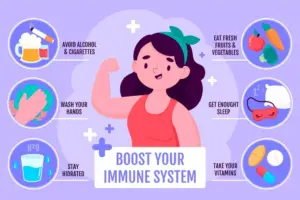
The complexities of relationships can be even more challenging for neurodivergent individuals. Recent studies reveal that nearly 50% of autistic adults experience isolation and difficulties forming close connections. Neurodiversity, encompassing variations like autism and ADHD, profoundly shapes how people interact, interpret social cues, and manage relationships. This article delves into how autism and ADHD influence friendships, romantic partnerships, and social interactions, offering practical strategies to foster understanding and connection.
Autism and Social Interaction: Navigating Communication and Sensory Sensitivities
Communication Styles and Misunderstandings
Autistic individuals often face unique communication challenges, interpreting language literally and finding idioms or sarcasm confusing. Research shows that around 70% of people with autism struggle with social communication, leading to relationship misunderstandings.
- Example: A couple might encounter confusion if one partner uses a metaphor that the autistic partner interprets literally, causing frustration for both.
Sensory Sensitivities and Their Impact on Social Situations
Sensory sensitivities can also pose significant challenges. Crowded spaces, loud environments, or unexpected physical contact may overwhelm autistic individuals, making social engagement difficult.
Strategies to address sensory overload include:
- Identifying triggers: Understand specific sensory inputs causing discomfort.
- Creating ‘safe spaces’: Ensure quiet areas are available during social events.
- Using noise-canceling headphones: Manage overwhelming sounds effectively.
Dr. Sarah Johnson, a sensory processing expert, states, “Recognizing your sensory needs can improve interactions and create comfort in social situations.”
Building Bridges: Tips for Communicating with Autistic Individuals
Effective communication with autistic individuals is crucial. Consider these tips:
- Use clear and direct language: Avoid idioms or complex phrases.
- Practice patience: Allow extra time for responses.
- Respect personal space: Understand and honor their comfort levels.
Explore resources like The Reason I Jump by Naoki Higashida for further learning or visit the Autism Society’s website.
ADHD and Social Dynamics: Impulsivity, Hyperactivity, and Inattention in Relationships
Challenges in Maintaining Relationships
For individuals with ADHD, impulsivity and hyperactivity can strain relationship stability. Studies indicate that nearly 40% of those with ADHD face relationship difficulties, often due to impulsive actions or inattention.
- Example: A partner might make an impulsive purchase, creating tension and financial stress.
Difficulty with Social Cues and Emotional Regulation
ADHD can impair the ability to interpret social cues and regulate emotions, potentially leading to conflicts. Dr. Emily Shannon, a psychologist, explains, “People with ADHD often miss subtle social signals, which can result in misunderstandings and relationship conflicts.”
Strategies for Improving Social Skills and Relationship Management
To enhance relationships affected by ADHD, try the following:
- Make use of active listening techniques: Distraction-free, give the speaker your full attention.
- Develop emotional regulation techniques: Use mindfulness or breathing exercises.
- Seek expert assistance: Coaching or therapy can have a life-changing effect.
Resources like ADHD coaching groups and self-help books offer additional guidance.
Romantic Relationships and Neurodiversity: Love, Intimacy, and Understanding
Challenges and Strengths in Romantic Partnerships
Neurodivergent individuals bring unique strengths and challenges to romantic relationships. Navigating these relationships requires open communication and understanding between parties.
- Example: A neurodivergent couple might create personalized routines to meet each partner’s needs, fostering harmony.
Intimacy and Emotional Expression
Building intimacy in neurodivergent relationships requires patience, as differences in communication styles can complicate emotional expression.
To bridge these gaps:
- Have regular check-ins about feelings.
- Explore alternative ways to express love, such as written notes or small gestures.
Relationship counselors emphasize the importance of clear discussions about needs and feelings.
Seeking Support and Building a Strong Foundation
Support is essential for building strong relationships. Seek couples counseling or specialized support groups tailored for neurodivergent individuals. Self-acceptance is also crucial; understanding yourself paves the way for deeper connections with others.
Friendships and Neurodiversity: Building Connections and Navigating Social Settings
Challenges in Forming and Maintaining Friendships
Neurodivergent individuals often face difficulties forming and maintaining friendships due to social anxiety, sensory sensitivities, and communication differences. Research highlights that 60% of people with autism struggle to make friends.
Finding Common Ground and Shared Interests
Shared interests are key to forming meaningful friendships. Participating in hobbies or activities that resonate with both individuals can foster connections.
- Start small by discussing common interests.
- Join clubs or groups related to your passions.
Many neurodivergent friendships thrive on shared interests, such as creative arts or gaming.
Cultivating Supportive Friendships
Supportive friendships enhance well-being. Communicating your needs and setting boundaries can strengthen these bonds. Local support groups and online forums are excellent places to build meaningful connections.
Conclusion: Embracing Neurodiversity in Relationships and Social Life
Neurodiversity presents both challenges and opportunities in relationships. Understanding and accepting diverse communication styles, behaviors, and experiences are crucial for fostering strong connections. Continuous learning about neurodiversity promotes empathy and awareness, reminding us that everyone deserves meaningful relationships.
Embrace diversity in relationships and advocate for greater understanding in your community.



